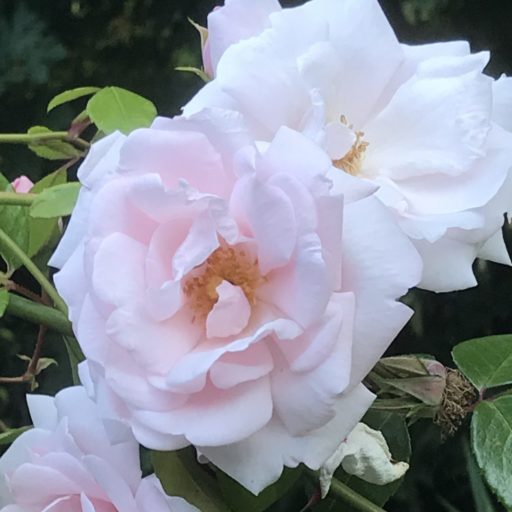There have been 23 bienniel Phage meetings at The Evergreen State College. The next is anticipated to be held in 2021. Please contact Dr. Betty Kutter if you are interested in the 2021 conference or more about phage therapies. Participants are not all scientists! Many have been educators or just “regular folks” who are interested in either microbiology or the practical applications of bacteriophage in health and industrial settings.
TESC students are invited to attend, as is the general public. There is generally a small daily fee for attending if you are not a student. Check at the website at blogs.evergreen.edu/phage for information. Registration usually begins early in the year of the meeting, but information may be available sooner.
There are lectures and talks, and poster sessions. Getting to rub elbows with some of the movers and shakes of microbiology is always a real bonus. There are medical experts, scientists, business people and many others. It’s a lot of fun.
My family has been involved in various capacities with the bacteriophage lab at Evergreen for nearly a quarter century. My husband worked for Dr. Kutter soon after we were married while he was a student at Evergreen, and that translated into his first professional programming job for several years.
Our elder son attended his first lecture at Evergreen when only a couple months old — and both children spent their early years wandering the halls of Lab II to have lunch with their father, who was doing database work for the lab. I had the pleasure of being in one of Betty’s microbiology classes (my one and only foray into biological sciences) in 2008 when I was taking post-bac coursework before entering the Master’s in Teaching program. A decade after I worked behind the scenes on the 2009 meeting our elder son took on the same role.
It’s exciting to have a meeting that is, literally, world-renowned here in Olympia. For students who are interested in microbiology or medical applications of microbiology this conference is a local connection to the wider world. Although the actual lectures tend to be pretty high-end, with some advance thinking and planning, specific sessions might be useful for motivated students. For teachers who are interested in microbiology, this conference can be an excellent resource in terms of familiarizing oneself with the most current trends. At the 2009 conference, Cory Sonneman spoke during the opening session about a study into inquiry-based scientific learning using a “Phagedigging” project in high schools. A copy of his abstract is on page 6 of the abstract book from the 2009 conference.
Dr. Elizabeth Kutter:
